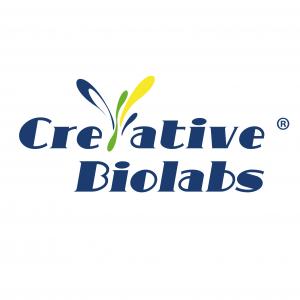Why Creative Biolabs Is Betting on AI-Driven Chemical Synthesis to Accelerate Drug Innovation
As a leading CRO, Creative Biolabs employs AI-driven chemical synthesis to integrate smart algorithms with experimental chemistry and accelerate drug discovery.
SHIRLEY, NY, UNITED STATES, November 10, 2025 /EINPresswire.com/ -- Within the research and development (R&D) sphere, Creative Biolabs serves its clients across all the important areas of pharmaceutical development—right from molecular design to the complex drug substance preparation."As a result of data-driven approaches in chemical-synthesis research, AI guides every step of the process, from molecular construction through reaction pathway design to experimental assessments," said a senior scientist at Creative Biolabs.
AI and De Novo Chemical Synthesis: Predictive Molecular Innovation
In drug development, molecular design and synthetic pathway planning are some of the factors that determine the efficiency and the success of the project right from the start. Creative Biolabs employs AI-driven de novo chemical synthesis that incorporates advanced deep learning methods along with modern molecular generation to create and innovate novel chemical structures from the ground up. AI predicts reaction pathways, and through rapid project screening and synthesis optimization, it scans millions of structures to identify unstable or unattainable synthesis candidates.
"We can understand synthesis complications before we even get into the lab and even identify preferred pathways using AI prediction," the scientist noted. "This improves the speed and predictability in the development of novel molecules."
AI-Powered ADC Chemical Synthesis: Accelerating Targeted Therapy Development
The synthesis of antibody drug conjugates, which are critical components of targeted cancer therapy, is complex because of challenges in linker design, payload stability, and conjugation strategies.
The integration of AI with ADC chemical synthesis in Creative Biolabs involves the use of predictive algorithms to evaluate the relationships of antibodies, linkers, and cytotoxic payloads, quickly improving the conjugation strategies and optimizing reaction parameters to obtain ADC components in desired purity and consistency.
"The use of AI assists in predicting the best linker–payload combinations and simulating how they will perform in different reaction conditions," said the scientist. "This enhances the reproducibility of ADC production while also improving the safety and stability of products."
In addition, the service combines automated reaction planning with high-throughput verification, thereby delivering results in weeks that would traditionally take months—this significantly speeds up ADC innovation pipelines.
AI in Protein Degrader Chemical Synthesis: Unlocking the "Undruggable"
Targeted protein degradation, as exemplified by PROTACs, is a new type of "precision medicine." Creative Biolabs' AI platform for protein degrader chemical synthesis utilizes AI-driven molecular modeling and dynamics simulations to predict E3 ligase selectivity, optimize linker composition, and improve formation efficiency of the ternary complex.
"The AI system allows us to quickly screen and verify millions of possible degraders, dramatically increasing the chances of hitting and the throughput of synthesis for protein degraders," said the research team.
About
Creative Biolabs will continue to expand its AI chemical synthesis platform towards an automated, more intelligent, more precise drug development process that moves the pharmaceutical industry forward.
Candy Swift
Creative Biolabs
+1 631-830-6441
marketing@creative-biolabs.com
Legal Disclaimer:
EIN Presswire provides this news content "as is" without warranty of any kind. We do not accept any responsibility or liability for the accuracy, content, images, videos, licenses, completeness, legality, or reliability of the information contained in this article. If you have any complaints or copyright issues related to this article, kindly contact the author above.

